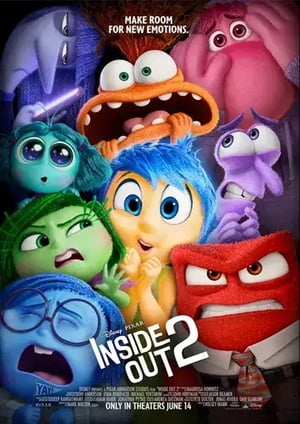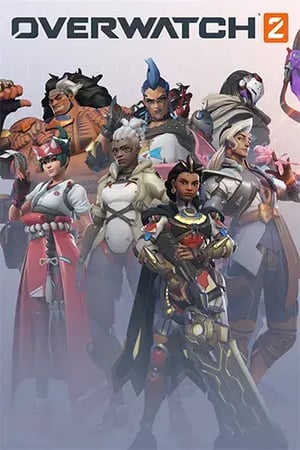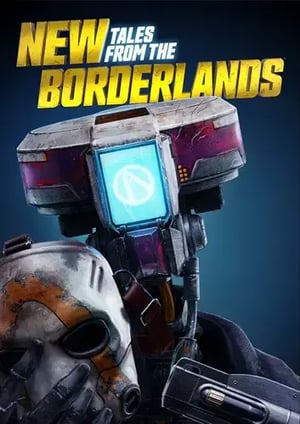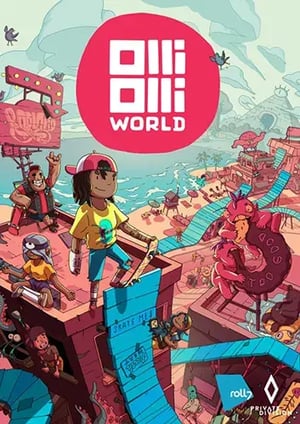
Course Comparison
Discover the key differences and similarities between our accredited courses and career tracks
Student work by Enoch Chai
Which Creative Course Suits You?
We understand that everyone's learning journey is different, which is why we offer courses that cater to different budgets, schedules, and skill levels.
OUR COURSE OPTIONS:
- Accredited Courses: Learn specialized technical and creative skills for film and games and gain a solid understanding of industry concepts through rigorous practical and theoretical training. Graduate with a degree or diploma.
- Career Track Courses: Through hands-on, practical training, master the tools, techniques, and software needed to pursue a fulfilling career in film and games or 3D visualization. Graduate with an industry certificate.
- Short Courses & Workshops: Build industry essentials in your chosen discipline, including commonly used techniques and how to navigate relevant software and tools.
Students who are serious about working in the industry usually decide between our accredited courses and career tracks. To assist in your decision-making process, this page outlined the similarities and differences between these two excellent course options.

Accredited Courses and Career Tracks
Although both course options are career-focused and industry-led, there are a few key differences between the career tracks and accredited courses (our bachelor's degrees and diplomas), which we have outlined below.
What is accreditation?
Accreditation is the process by which an institution or program is evaluated and recognized as meeting certain standards of quality and rigor. This ensures that the education provided meets high standards and that credits and degrees earned are respected and valued by employers and other educational institutions.
Which courses are accredited?
Our bachelor's degrees and diplomas are accredited by TEQSA (Tertiary Education Quality and Standards Agency). Our career track courses (along with our shorter courses and workshops) are not accredited.
What certification will I graduate with?
If you enroll in one of our accredited courses, you will graduate with a degree or diploma (depending on your exit point), and if you enroll in one of our career tracks, you will graduate with an industry certificate.
Our accredited courses require a weekly commitment of at least 40 hours (full-time study load), and those studying the degree or diploma must complete 18 units or six units, respectively.
Our career track courses require a minimum of 20 hours a week (full-time), and students need to complete a total of six units.
Formal assessments are part of the accredited courses, and students will be required to complete (and pass) a series of course assessments with deadlines throughout their studies in order to graduate.
Career track courses also issue classwork. The work you submit is not graded, but your mentor will give you personalized feedback. In order to graduate, you will still need to complete all classwork, and your mentor will need to consider it satisfactory.
If studied in a full-time capacity, our degrees take 24 months to complete over six trimesters, and our diplomas take 6 months over two trimesters. Our career track courses can be completed in 18 months over three 12-week terms.
Although our bachelor's degrees are longer and more intensive than our career tracks, it's important to note that they are actually still shorter than most typical degrees—two years instead of three.
All our accredited courses are also available to study part-time.
All our courses offer some form of financial aid. The accredited courses and career tracks differ in their available options. See our list below:
Accredited courses
- FEE-HELP (available to eligible Australian citizens only)
Career tracks
- Discounts for paying course fees up-front
- Flexible loans through CLIMB Financing
- Payment plans, including monthly installment plans
To learn more about financial aid, head to our Tuition & Payments page.
When applying for any course at CG Spectrum, applicants must be proficient in English (spoken and written) and possess basic computer literacy.
Entry requirements for accredited courses
Entry requirements for our degrees and diplomas are more formal than those for the career tracks.
The process for applying for our degrees and diplomas is similar to that of any Australian higher education institution registered with TEQSA. Institutions registered with TEQSA must comply with their standards, including entry requirements.
Applicants must have obtained a certain level of prior education (usually completion of year 12 or similar) before they will be accepted. These requirements differ slightly depending on whether you are applying as an Australian citizen or as an international student.
If applying for the Bachelor or Diploma of Digital Art, applicants must submit a portfolio demonstrating their skill level before they can be considered.
For a more detailed description of entry requirements for the degrees and diplomas, please head to the FAQ page.
Entry requirements for career tracks
The minimum age to be able to enrol in our career track courses is 16. We require parent or guardian consent during the enrollment process for applicants under 18.
We expect our students to have a good understanding of written and spoken English. There’s no specific ’level'; however, you must be able to understand video tutorials in English (no subtitles) and speak with your mentor in English during your live Q&A session.
Our concept art course has one additional entry requirement. Students must submit a portfolio demonstrating their skill level before their application will be considered.
All our course options offer small class sizes, however, the exact number of students per class does vary between the accredited courses and career track.
Accredited courses
Class sizes are standardized and contain a maximum of 15 students per subject.
Career tracks
Students can choose between two class sizes:
- Small (maximum four students)
- Private 1-on-1 classes
Please note that the fees for the career track 1-on-1 class option are higher than the small class option. See our course comparison table below for more details.
Our Courses at a Glance
Explore the table below, which compares the accredited degrees and diplomas with the career tracks, to see which course option best fits your needs.
Diploma
Degree
Career Track
(Group Class)
Career Track
(Private 1:1)
Course Content Comparison
Both our accredited and career track course options are led by film and game experts and teach the latest industry-standard software, tools, and techniques.
The accredited courses differ from the career tracks mainly in the theoretical knowledge taught through subjects that fall under what we call "Creative Concepts" and "Industry Concepts." These theory-based subjects include film and game practices and processes, as well as creative concepts and principles, providing more contextual content to the necessary practical components.
Within the career track courses, students still gain industry insights and develop an understanding of some film and game theories and practices, however, these subjects are not explicitly included in the curricula.
Below is a comparison of what you will learn in the accredited courses versus the career tracks using our concept art subjects as an example.

Accelerate Your Academic Journey
Are you eager to begin your educational path without delay? Our Career Track provides a flexible and efficient route to help you get started quickly. By enrolling in the Career Track, you can seamlessly apply for credit transfers towards our fully accredited courses, ensuring that your previous learning and professional experience are recognized and valued.
Seamless Credit Transfer Options
If you have already completed coursework with our institution, we offer a straightforward credit transfer process from our Career Tracks directly to our Bachelor's Degree program. Our academic advisors are ready to help you navigate this transition, maximizing the value of your existing educational credits and creating a personalized pathway to your academic goals.
Different Pathways. Same Amazing Experience.
At CG Spectrum, we believe in delivering excellence regardless of your chosen path. Whether you opt for our accredited programs or our career tracks, you'll receive an unparalleled educational experience designed to nurture your talents and equip you with industry-relevant skills.
Here's what you can expect from both our accredited and career track courses:
- Industry-Driven Curriculum: Benefit from cutting-edge course content crafted by industry professionals to meet real-world demands.
- Expert Mentorship: Learn from accomplished film and game professionals who bring years of experience to guide your artistic journey.
- Dedicated Technical Support: Access our in-house technical assistants for prompt help with any technical challenges or troubleshooting needs.
- Career Development Resources: Utilize exclusive career support services and attend special events to boost your professional prospects.
- Vibrant Online Community: Join a thriving network of over 4500 students, mentors, and alumni, fostering collaboration and inspiration.

Get The Education Your Deserve

"CG Spectrum seemed too good to be true. Looking back, it was the best decision.
Every mentor and staff member has been so hands-on and directly involved in my learning. Co-Directors of top box office movies and supervisors of major Netflix TV shows are giving me feedback on my projects. Students also have access to a strong community, and an awesome career class to prepare you for your dream job."

Stephanie S | 3D Modeling

"Hands down the best decision I've made for my career.
The learning material and staff were great, and having an industry mentor was an invaluable asset that really helped me get my break in the VFX industry."

Alan R | VFX Compositing

"Having a mentor definitely helped! It was awesome to have someone I could reach out to when I was stuck.
Getting the weekly feedback also helped in terms of what to improve and what to focus on next. In Term 3, we learned Unreal Engine; I implemented the knowledge I gained in that course to my Advanced 3D Modeling Course to create some additional renders that demonstrated my understanding of using and integrating game-ready assets into an actual game engine.

Benjamin O | 3D Modeling

"My experience at CG Spectrum was second to none, and taught me so much more than I initially anticipated.
My mentor took me from being barely computer literate to an animator working at a studio in only a year and a half. The information and level of teaching at CG Spectrum will absolutely not be found anywhere else."

Kieran | Animation

"The CG Spectrum training solidified my skills using Unreal Engine.
Having used it briefly before, and feeling overwhelmed by how big the range is of what you can do using the engine, the training taught me the areas I would need for virtual production very well. I now feel confident with the skills I have gained."

Simran M | Real-Time 3D & Virtual Production

"I have never experienced such an explosive evolution in my art since attending CG Spectrum.
I have learnt an incredible amount, not only from my amazing mentor Eric Wilkerson but from the entire CGS community. Being part of such an amazing program has opened my eyes to techniques that have streamlined my process and increased my confidence tenfold."

Oliver H | Concept Art & Illustration

"CG Spectrum is the perfect place to gain focus, understanding, an encouragement for your journey.
If you are looking for a supportive place to gain or hone skills in game design or other verticals, CGS is a fantastic and worthy place to dive in."

Shaul H | Game Design

"I highly recommend signing up with CG Spectrum!
I was looking for a final push to bump my skills and finally start applying for jobs as an artist. Shortly after finishing my Advanced 3D Modeling Course I landed my first job as Junior Environment Artist, which was my dream!"

Kasia P | 3D Modeling

"I got a job offer at a major feature film studio before even graduating!
Studying at CG Spectrum gave me the opportunity to network with industry artists while I was learning, and coupled with the amazing course, I was able to secure a position in the industry. Now I'm working on amazing projects in my dream job!"

Andi E | 3D Modeling
Join Our Alumni at World Class Studios
Our mission is to train highly skilled graduates ensuring they are prepared for a successful career. Take the first step towards joining our alumni at world-class studios creating work that inspires.














